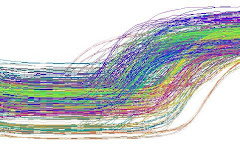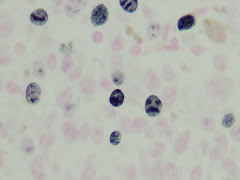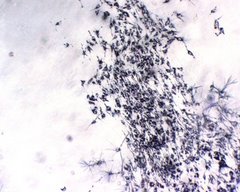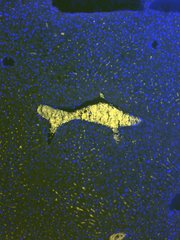
Tuesday, August 19, 2008
Friday, July 25, 2008
I had recently been wasting my free time doing the memory games at Sporcle, and could not for the life of me complete the Periodic Table. One of the elements that I always miss is Tantalum – Niobium I could remember, but Tantalum I couldn't. To my Western eyes, it was just another one of those forgettable transition elements in the wasteland between chemistry and nuclear physics – if you can find a use for it, good for you. To East Africa, it's a reason to go to war. As small as the world has become in terms of information and economics, we are all still pretty provincial in terms of information and economics. I won't forget Tantalum, next time I'm looking at the Periodic Table, but more importantly, the table looks different now; where else are suffering and injustice hiding in that pretty wallchart?
Thursday, June 19, 2008
Wednesday, June 11, 2008
The monkeys grasp this 'money' concept despite the fact that their lineage diverged from that of humans about 35 million years ago. “It’s quite surprising to find such an ability in a monkey species that is so [evolutionarily] distant from humans,” says Addessi.
Previous studies have focused on similar skills in great apes such as chimpanzees. But this is among the first to assess symbolic reasoning in a species so distantly related to ourselves.
I'm still reeling when I read that! And, I know the gross majority of people, scientists and non-scientists alike, would be puzzled by my reaction. Here's the thing: since when is money genetic? What in the #&$@ does the genetic ("evolutionary") distance between humans and Capuchins have anything to do with social behaviors? The implication is that this sets the origins of money back at least 35 million years to our last common fiscal ancestor. It suggests that barter is some higher order behavior limited to an elite few primate clades, and not a fundamental aspect of inter-individual interaction. This seems similar to the revelation decades ago that other social organisms practiced altruism; how can a group of individuals function socially without a drive toward a greater good, without a desire to help other members, without exchange? Bees dance to tell other workers where the flowers are, and the other workers use "symbolic reasoning" to find them. OK, maybe that's going too far, but the whole genetics-explain-everything mentality of the current scientific age tends to get under my skin.
Oh, and here's what else Nature had to add:





